Search
98720 UNUSUAL REFINERY BOILER TUBE FAILURES DUE TO CORROSION BY SULFURIC ACID INDUCED BY STEAM LEAKS
Also Purchased
08436 Boiler Tube Failures and Integrity Assessment
Product Number:
51300-08436-SG
ISBN:
08436 2008 CP
Publication Date:
2008
$20.00
01342 Metallic Materials for Concentrated Sulfuric Acid Service
Product Number:
51300-01342-SG
ISBN:
01342 2001 CP
$20.00
07450 FAILURE ANALYSIS AND INVESTIGATION METHODS FOR BOILER TUBE FAILURES
Product Number:
51300-07450-SG
ISBN:
07450 2007 CP
Publication Date:
2007
$20.00
Recently viewed
-
 97482 A New Cooling Water Treatment to Reduce Blow down
97482 A New Cooling Water Treatment to Reduce Blow down
-
 97553 FIELD TESTING OF VAPOR PHASE CORROSION INHIBITORS AND DEHUMIDIFICATION AS CORROSION CONTROL METHODS FOR ADVANCED DOUBLE HULL NAVAL SHIPS
97553 FIELD TESTING OF VAPOR PHASE CORROSION INHIBITORS AND DEHUMIDIFICATION AS CORROSION CONTROL METHODS FOR ADVANCED DOUBLE HULL NAVAL SHIPS
-
 51316-7713-Pipeline Integrity Assessment In-Line Inspection and Direct Assessment Anomaly Density
51316-7713-Pipeline Integrity Assessment In-Line Inspection and Direct Assessment Anomaly Density
-
 98732 ANODE CONSUMPTION ON A SUBSEA X-MAS TREE
98732 ANODE CONSUMPTION ON A SUBSEA X-MAS TREE



